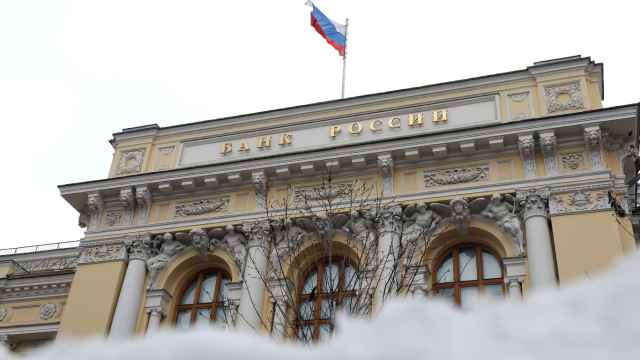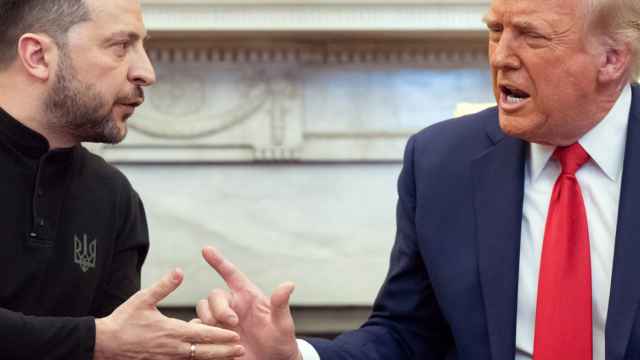The European Central Bank's recently announced policy of bond buying, what it calls "outright monetary transactions," marks a convergence of European central banks with their Anglo-Saxon counterparts. While the European Central Bank's actions represent the best chance yet to put an end to a crisis that has been playing out since 2010, the bank has markedly raised the stakes for governments.
The European Central Bank's policy framework is well-suited to fighting systemic blazes, but poorly suited to local fires, which thus can spread uncontrollably. The outright monetary transactions program, which allows the European Central Bank to buy sovereign bonds of countries that have agreed to reform their economies, significantly levels the playing field between the bank and its peers among advanced economies. Spain has the same fiscal and structural problems that it had prior to the outright monetary transactions program's launch, but now it has an external lender of last resort. That is a game-changer.
Under the pre-outright monetary transactions regime, a capital outflow from Spain, whether through the sale of government bonds or the liquidation of private claims, resulted in tighter monetary conditions. The sale of sovereign bonds under the fixed-exchange-rate regime put direct upward pressure on their yields, while sales of private securities by foreigners had a similar effect, but through indirect channels. Monetary tightening was forestalled only to the extent that another source of foreign capital (either private or European Central Bank) could replace the outflow.
The point at which credit risk becomes a risk involving exchange rates or redenomination is ambiguous. But the metamorphosis tends to go hand in hand with localized monetary contractions that exacerbate the correlated risk of sovereign default and bank failures. In Spain, as in Greece before it, the monetary squeeze has become chronic as banks run short of European Central Bank-eligible collateral.
Under the outright monetary transactions program, the European Central Bank can replace foreign outflows from sovereign-bond markets through direct purchases, putting Spain on par with non-eurozone countries like Britain. To the extent that there is even an informal price target associated with the European Central Bank's commitment to purchase bonds, foreign outflows, at least from the sovereign-bond market, are automatically replaced, in full, with cash from the European Central Bank.
Without the European Central Bank's willingness to buy a potentially unlimited volume of sovereign bonds to achieve its very imprecise objective of mitigating redenomination risk, the eurozone would have been doomed to recurring episodes of internal funding stress. The outright monetary transactions program breaks the volatile liquidity cycle that stems from chronic shortages of bank collateral and a limited fiscal transfer mechanism.
More broadly, the European Central Bank's marginal lending facility is an indirect means of monetizing sovereign debt. It is an even less direct way to address the private, debt-related overhang. But it works.
That said, much can still go wrong. The European Central Bank has bought time, but it has also raised the stakes. The credibility of its pledge depends as much on what it will do — buy unlimited quantities of government bonds — as on what it will not do — buy them from countries that do not fulfill conditionality. Without a credible threat to cut off wayward sovereigns, the bank's pledge provides a free lunch to investors and governments alike.
The problem is that following through on that threat would severely test the bank's commitment to do whatever it takes. After all, if markets truly believed that the European Central Bank would refuse to backstop errant governments, investors would run away from participating countries at the first sign that conditionality was not being met.
As with its predecessor, the Securities Markets Program, the outright monetary transactions program is legally and democratically questionable. It violates the spirit, but not the letter, of the European Union treaty's no-bailout clause. Its promise of equal treatment with private creditors still has no precedent, and it involves back-door fiscal transfers, leaving the European Central Bank heavily exposed to political backlash. Witness, for example, the visceral reaction of the German press to European Central Bank President Mario Draghi's announcement.
But outright monetary transactions also fit well with a large body of historical evidence that in times of crisis, policymakers must focus on extinguishing the fire rather than negotiating over who owns the water and what its cost should be.
The outright monetary transactions program will cause credit conditions to ease but without necessarily reversing the financial balkanization of the eurozone that has occurred over the last three years. Reversal of that process will likely not occur until the three key elements of banking union — common supervision, common deposit insurance and a common resolution fund — are within tangible reach. Indeed, if Spanish savers become truly afraid of redenomination risk in the interim, the outright monetary transactions will not matter. These Spaniards will just take their cash and deposit it as quickly as possible in, say, a German bank.
The eurozone is still prone to bad equilibriums as long as growth on its periphery remains weak. Even with outright monetary transactions, there remain crucial differences between the eurozone and the Anglo-Saxon economies. Fixed exchange rates within the eurozone impose a constraint that simply does not exist in Britain or the United States, and quantitative easing by the Bank of England and the Federal Reserve is unconditional in nature.
With outright monetary transactions, the European Central Bank has converged toward the Federal Reserve in its ability to backstop each of its individual parts. Whether that hastens or hinders political progress toward fiscal and banking federalism is the next big question.
In the interim, outright monetary transactions enable financial markets to start breathing again. The acute crisis is over, at least for now. But the existential challenge, political agreement on the key elements of banking and fiscal union, is only just beginning. Unless it is met, the eurozone's financial disintegration will eventually resume.
Gene Frieda is a global strategist for Moore Europe Capital Management. © Project Syndicate
Related articles:
A Message from The Moscow Times:
Dear readers,
We are facing unprecedented challenges. Russia's Prosecutor General's Office has designated The Moscow Times as an "undesirable" organization, criminalizing our work and putting our staff at risk of prosecution. This follows our earlier unjust labeling as a "foreign agent."
These actions are direct attempts to silence independent journalism in Russia. The authorities claim our work "discredits the decisions of the Russian leadership." We see things differently: we strive to provide accurate, unbiased reporting on Russia.
We, the journalists of The Moscow Times, refuse to be silenced. But to continue our work, we need your help.
Your support, no matter how small, makes a world of difference. If you can, please support us monthly starting from just $2. It's quick to set up, and every contribution makes a significant impact.
By supporting The Moscow Times, you're defending open, independent journalism in the face of repression. Thank you for standing with us.
Remind me later.





